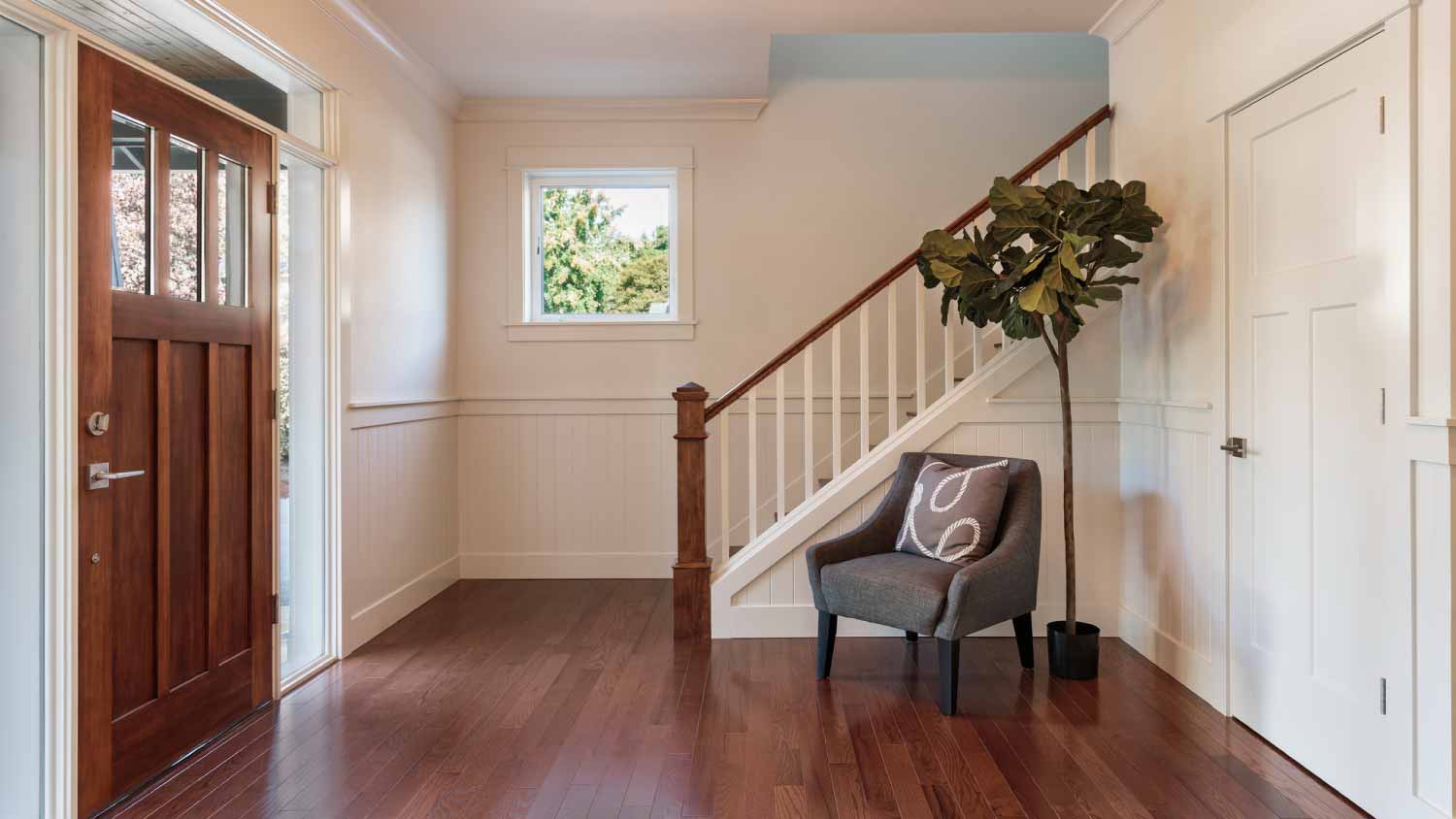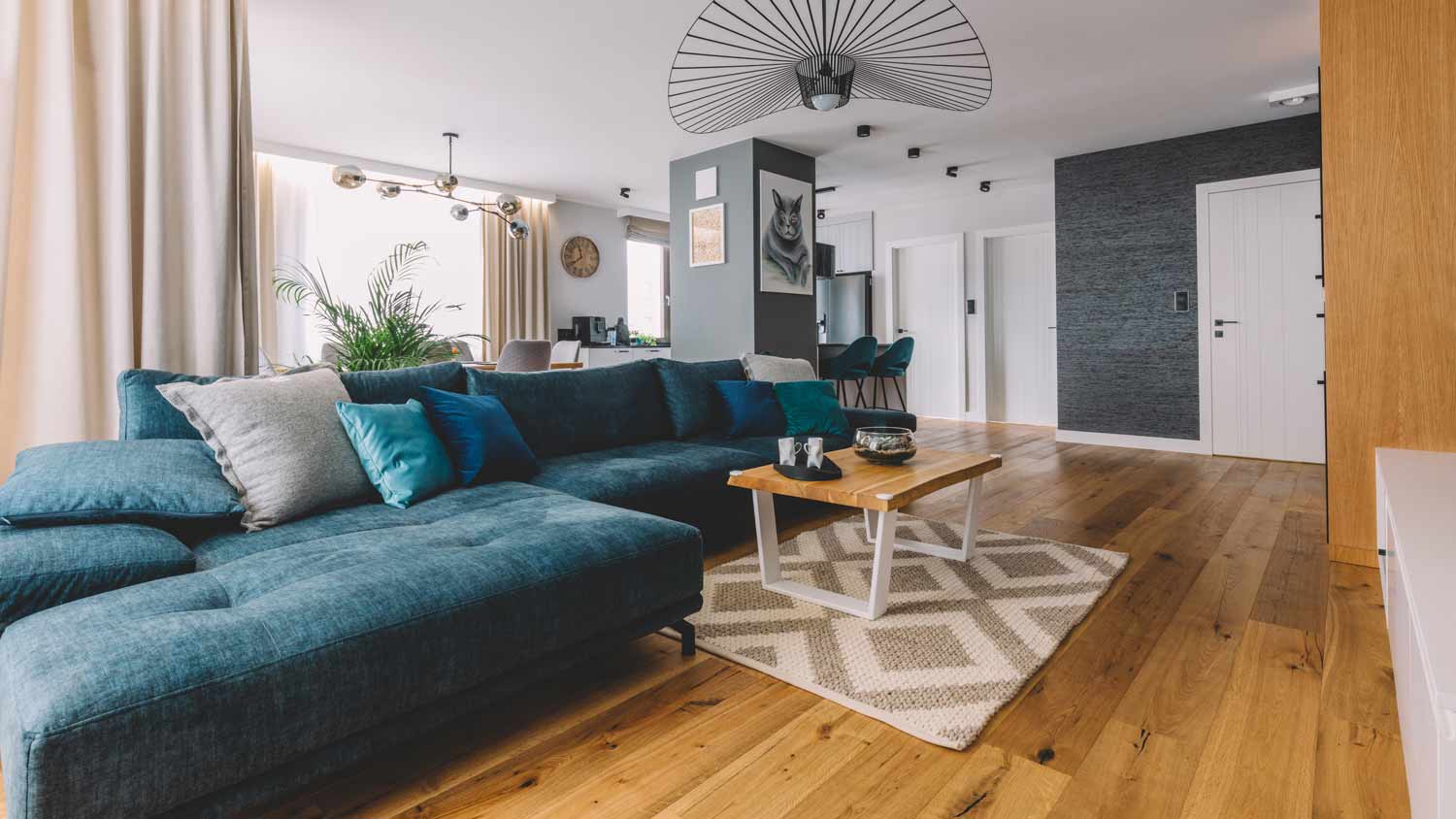7 Flooring Alternatives to Carpet That Will Elevate Your Home
Go beyond the rug and transform your space


Are you getting tired of that drab old carpeting? Choosing the right type of flooring for your home is a crucial decision that impacts not only the aesthetics but also the comfort and functionality of your living space. While carpet is a traditional choice, there are a ton of flooring alternatives to carpet that offer unique advantages. Whether you're seeking elegance, durability, or ease of maintenance, exploring your options here and getting advice from a local pro can transform your home.
1. Hardwood Floors
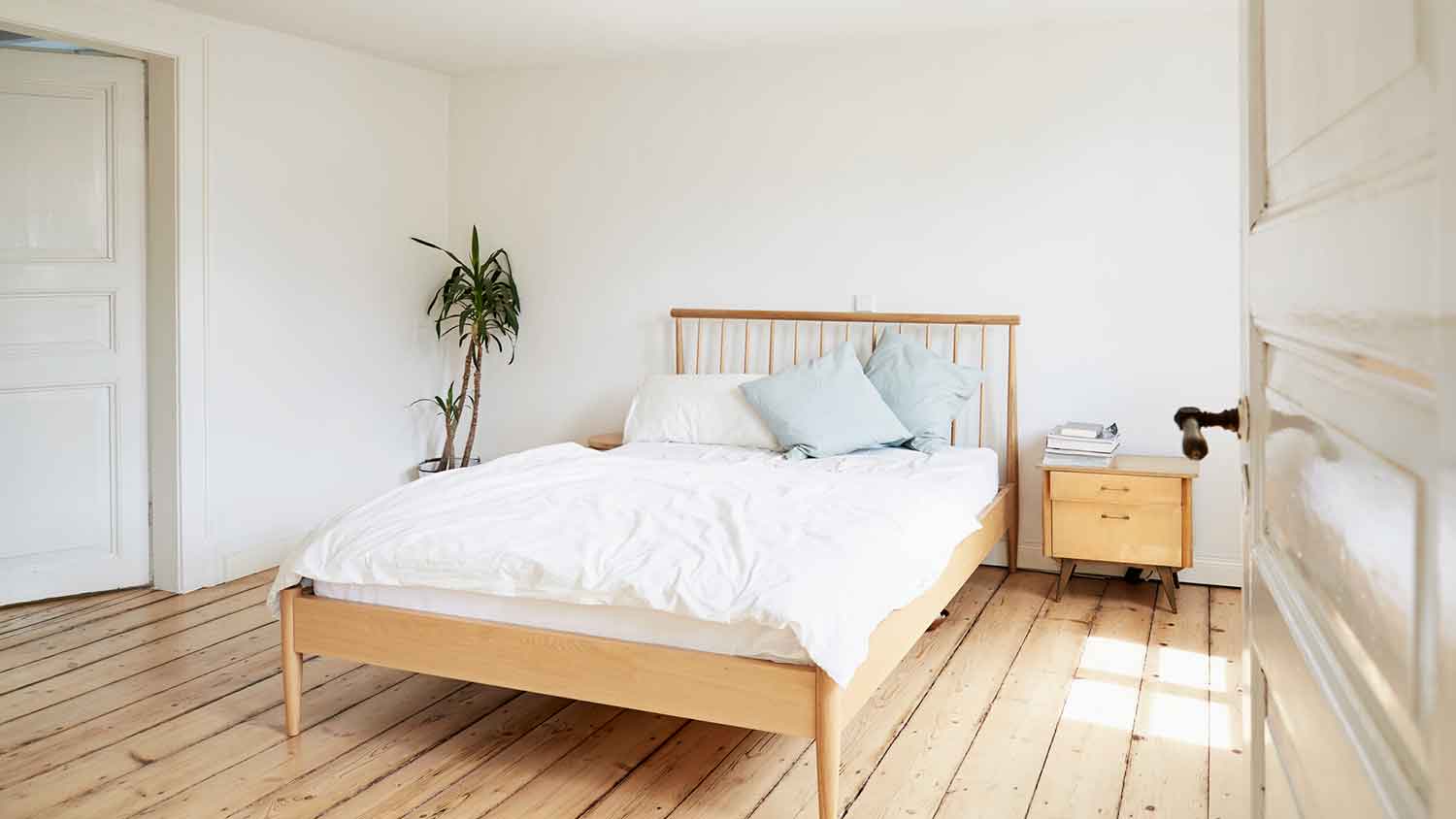
Hardwood floors exude timeless elegance and sophistication. Their luxurious appearance adds a touch of refinement to any room, from living areas to bedrooms. Unlike carpet, hardwood floors are easy to clean and maintain, and they contribute to better indoor air quality by minimizing dust and allergens.
However, solid hardwood can be a pricier investment, and it lacks the soundproofing qualities of carpet. Ideal for those seeking a luxurious transformation, hardwood floors are best suited for spaces that don’t see a ton of moisture.
| Pros | Cons |
|---|---|
| Luxurious appearance | High initial cost |
| Easy maintenance | Less soundproof |
| Increased home value | Less comfortable |
Best for: Those looking for a luxurious transformation in spaces like the living room, dining room, or bedroom
2. Vinyl
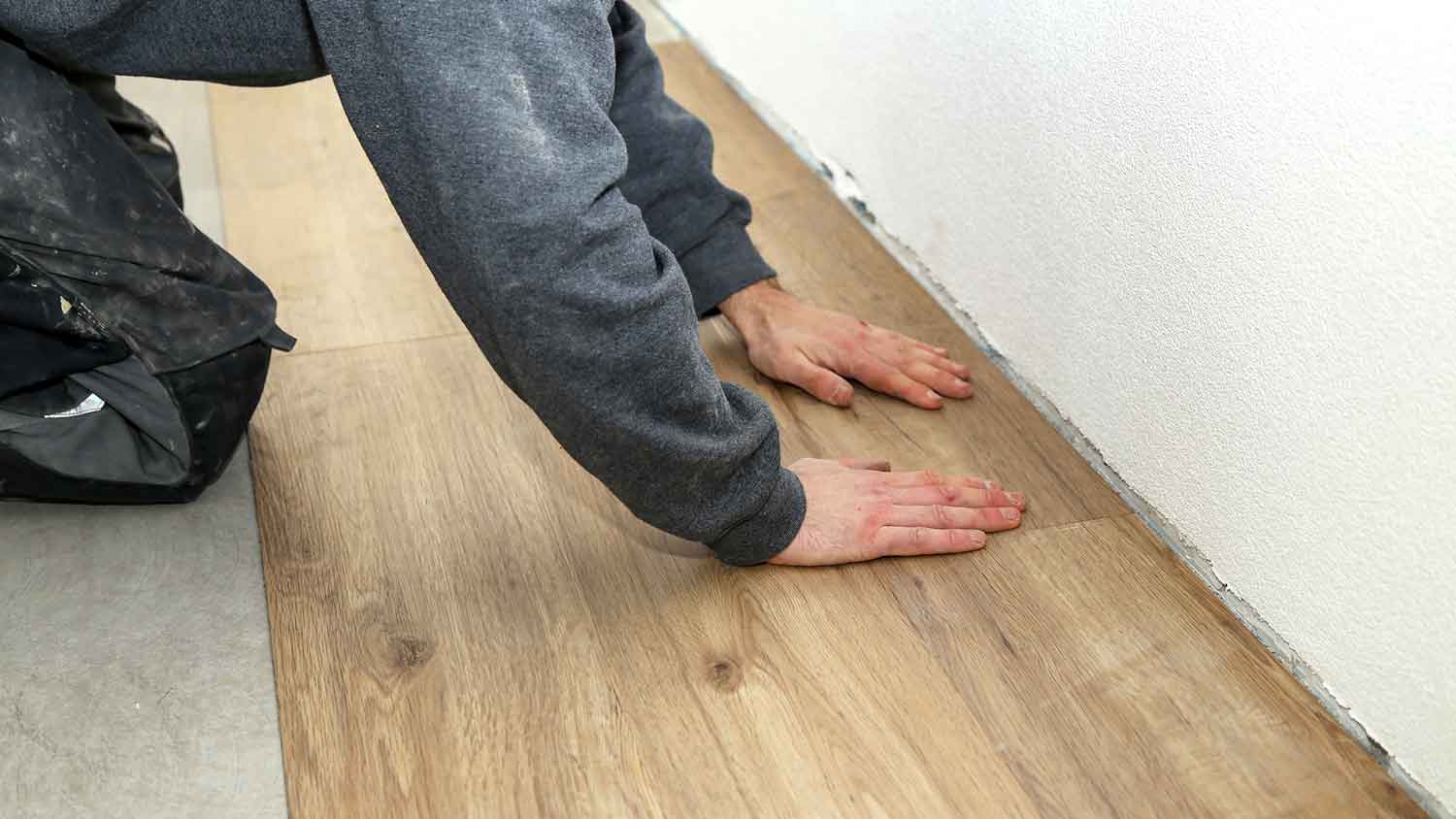
Vinyl is a cost-effective alternative to solid wood that replicates wood’s appearance while providing added durability and waterproofing. Vinyl flooring is easy to maintain and resistant to stains, so it’s suitable for high-moisture areas like kitchens and bathrooms. However, this alternative to carpet flooring may not enhance your home's value as much as hardwood, and it's not the most eco-friendly flooring option.
| Pros | Cons |
|---|---|
| More affordable | Less eco-friendly |
| Durable and waterproof | Shorter life span |
| Easy to maintain | Lower ROI |
Best for: Those seeking an affordable but luxurious update in spaces like the living room, dining room, kitchen, or bathroom
3. Laminate
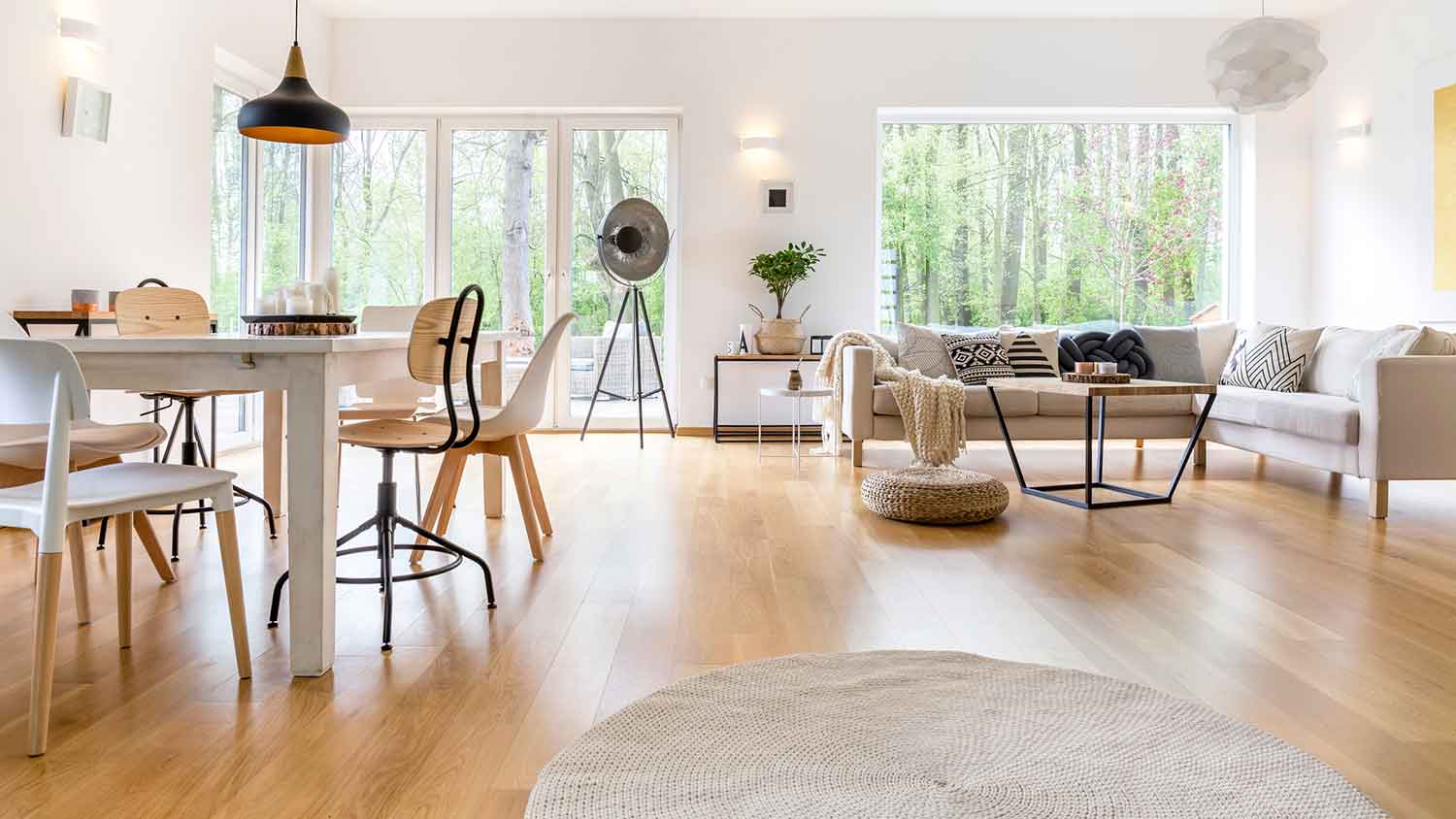
Laminate flooring combines affordability and sustainability with the aesthetic appeal of wood, making it a popular inexpensive flooring choice. It's durable, easy to maintain, and more eco-friendly than vinyl. Laminate doesn't, however, offer as much increase in home value as solid hardwood, and it's more susceptible to moisture damage than vinyl.
| Pros | Cons |
|---|---|
| Affordable | Lower ROI |
| Eco-friendly | Susceptible to moisture |
| Durable | Shorter life span |
Best for: Areas that aren't prone to moisture, like living rooms, bedrooms, and home offices
4. Ceramic Tiles
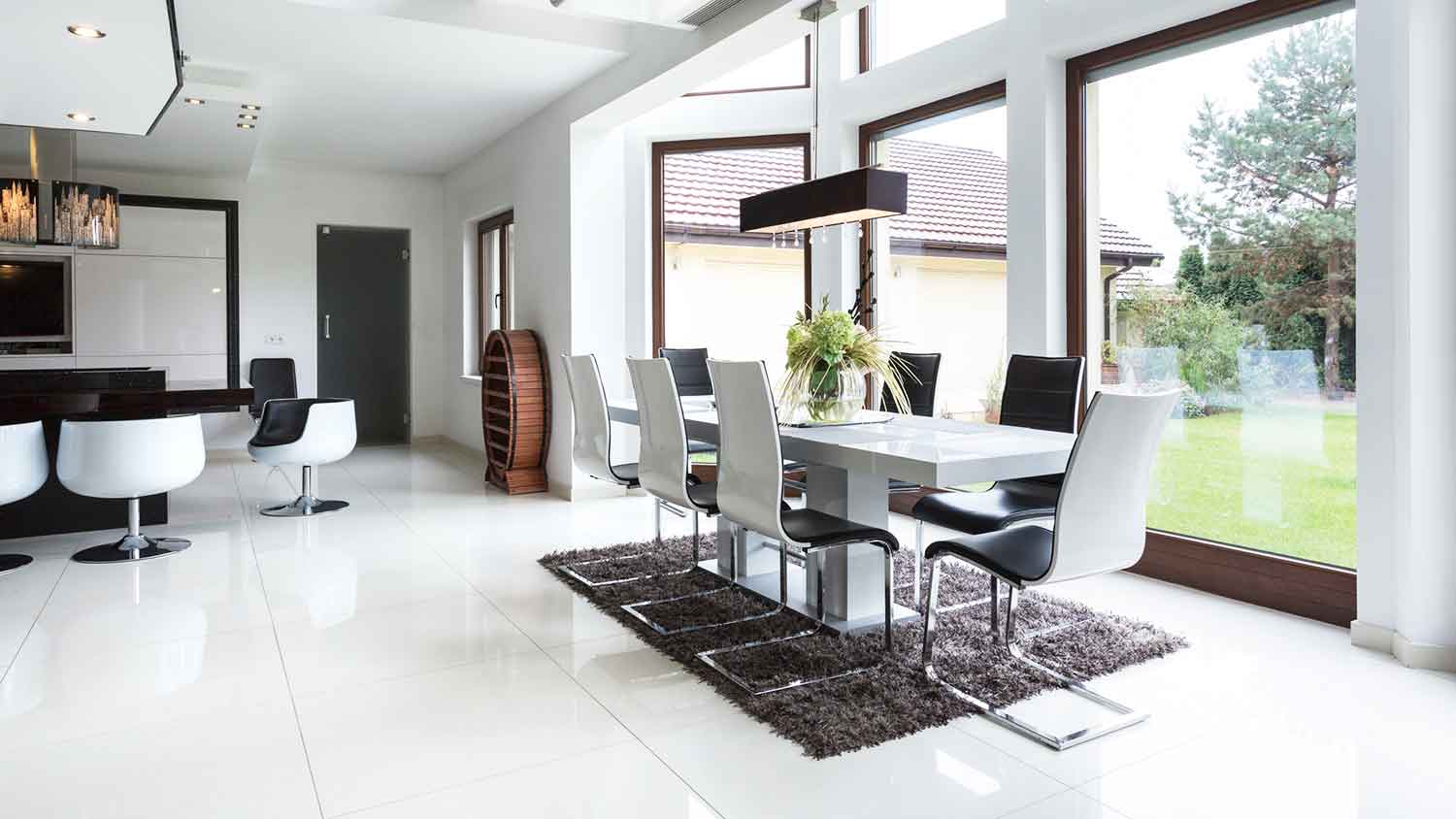
Prized for its hygienic properties, ceramic flooring is perfect for kitchens and bathrooms since it doesn't harbor bacteria and is easy to clean and disinfect. It’s also highly durable and available in a variety of patterns and colors. This makes ceramic versatile and suitable for areas prone to spills and moisture. One drawback is that it can feel cold and hard underfoot, making this type of flooring less comfortable to stand on.
| Pros | Cons |
|---|---|
| Hygienic | Cold to touch |
| Highly durable | Hard underfoot |
| Versatile |
Best for: Bathrooms, kitchens, and laundry rooms
5. Concrete
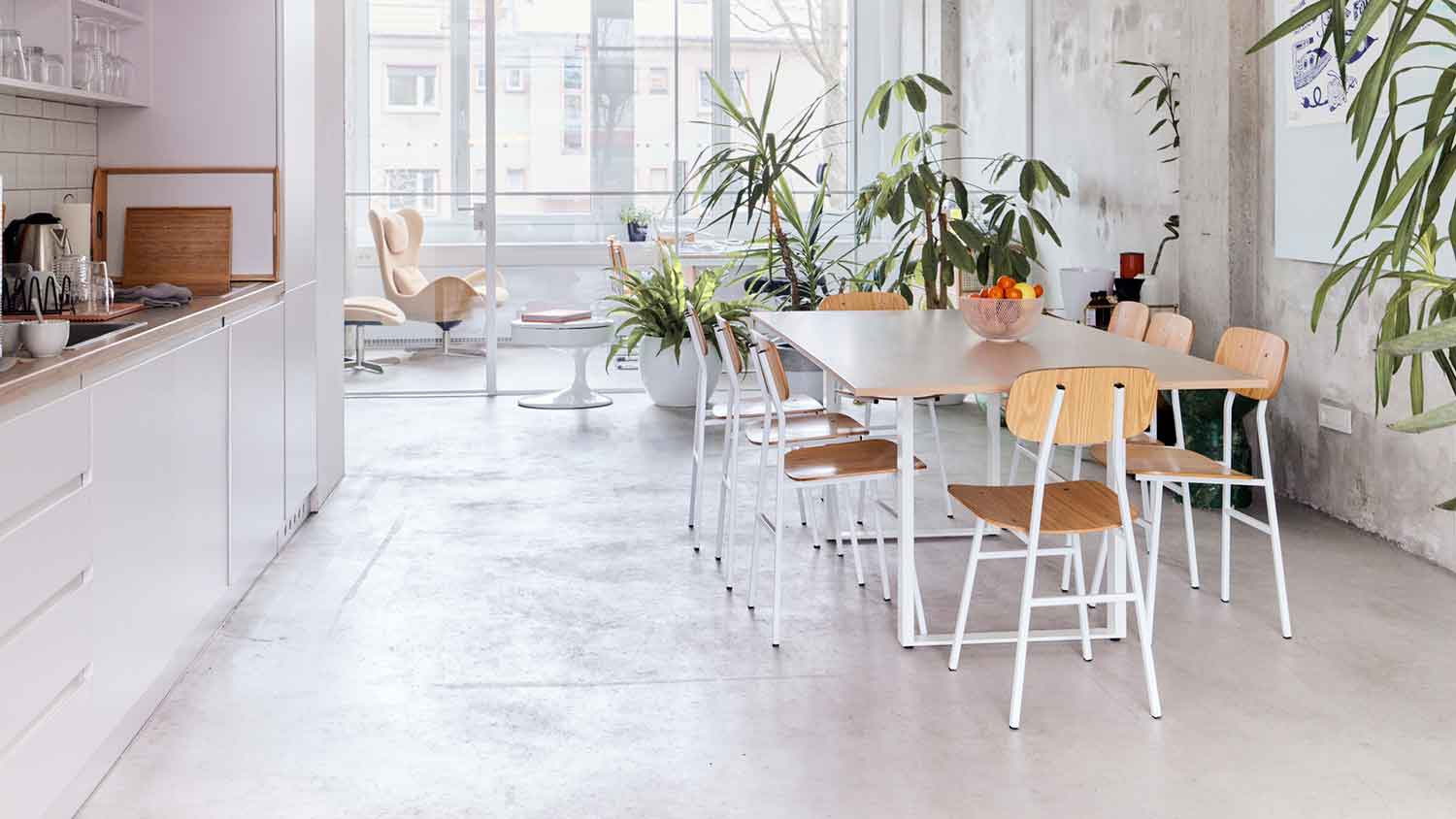
Concrete flooring offers a minimalist, industrial aesthetic and exceptional durability. It’s also low maintenance and fits seamlessly into modern homes. Plus, it’s resistant to fire, scratches, and stains when properly sealed.
Much like ceramic tile flooring, however, concrete can feel cold and hard when walked on, and it may be susceptible to cracks over time. This isn’t a DIY-friendly flooring option, either, so you’ll need to contact a local flooring company if you want concrete. Ideal for modern kitchens, bathrooms, and basements, concrete flooring adds a contemporary edge to any space.
| Pros | Cons |
|---|---|
| Highly durable | Cold to touch |
| Low maintenance | Hard underfoot |
| Modern aesthetic | Possible cracks |
Best for: Modern kitchens, bathrooms, and basements
6. Natural Stone
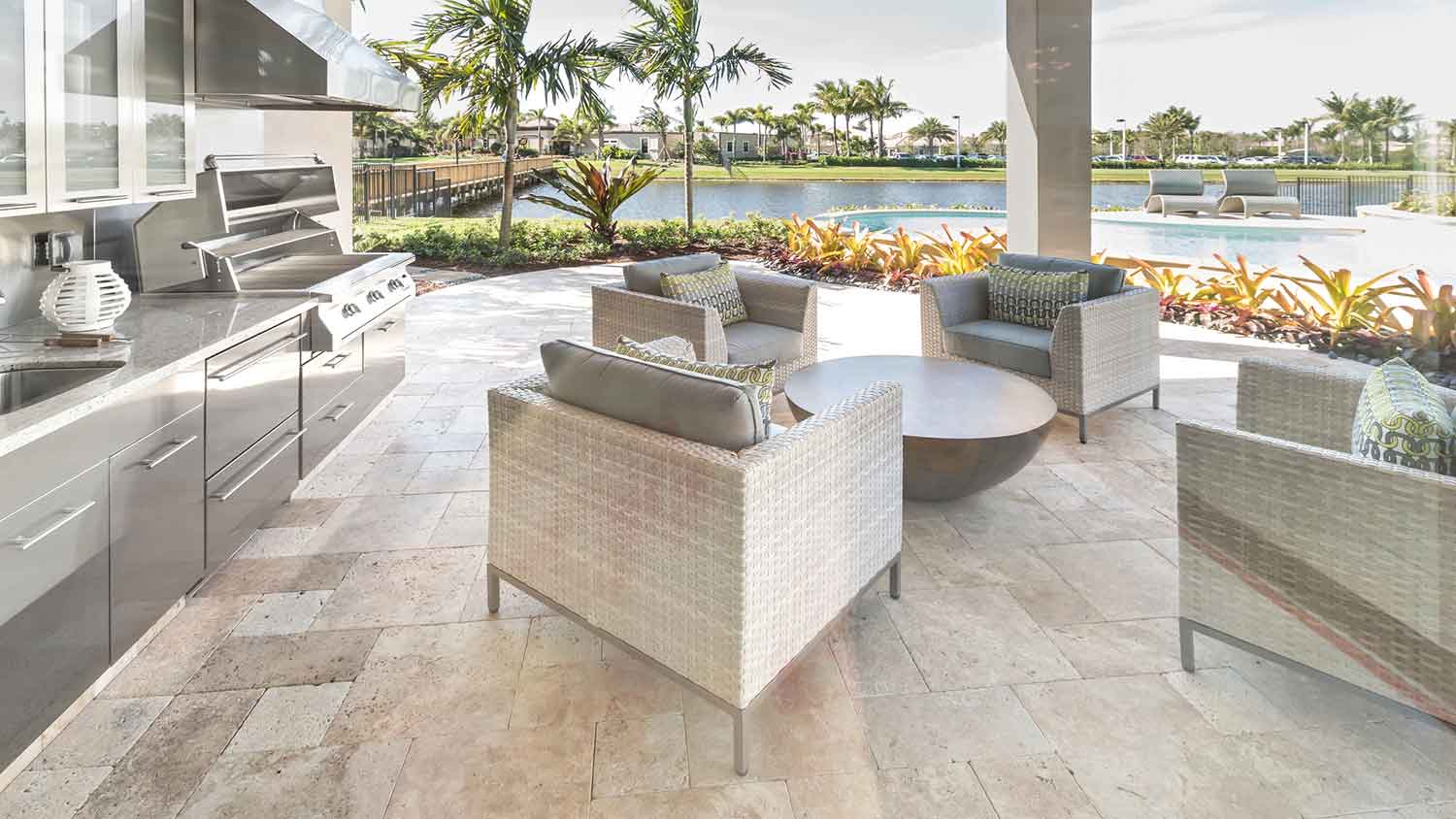
Boasting unparalleled durability and a timeless aesthetic, natural stone floors are suitable for both indoor and outdoor use. Stone is also an excellent choice for allergy sufferers. One of the most significant drawbacks, though, is that natural stone comes with a higher price tag. It can also be slippery when wet and is extremely hard. This means that it’s less comfortable to walk or stand on, and any falls that occur on the flooring can be more dangerous.
| Pros | Cons |
|---|---|
| Highly durable | Slippery when wet |
| Can use indoors and outdoors | Hard underfoot |
| Timeless aesthetic | High cost |
Best for: Elegant bathrooms, modern kitchens, laundry rooms, and patios
7. Cork
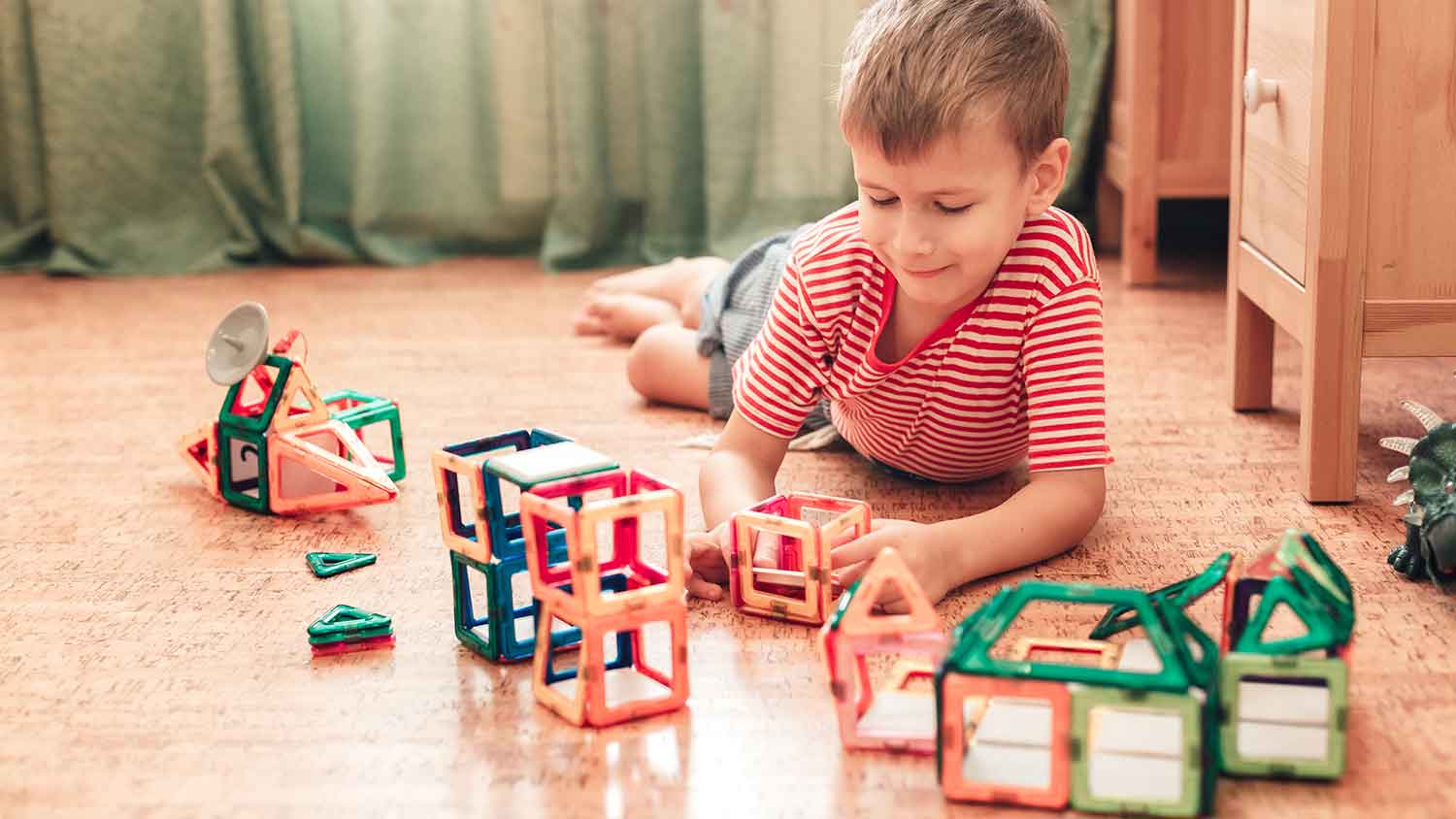
Cork flooring is a great choice for many different rooms in your home since it’s eco-friendly and comfy underfoot. It’s resistant to fire, mold, mildew, and termites, and it's excellent for allergy sufferers and green-living enthusiasts. Cork also has thermal insulation properties, making it warm and cozy even when you’re barefoot. As far as alternatives to carpet flooring go, cork may show wear faster than other flooring materials, especially in high-moisture or sunlight-exposed areas.
| Pros | Cons |
|---|---|
| Eco-friendly | Moisture-sensitive |
| Comfortable | Sensitive to sunlight |
| Resists fire, mold, and mildew | Wears faster |
Best for: Kids' rooms, bedrooms, and hallways
Frequently Asked Questions
Each flooring material has its own maintenance requirements and cleaning techniques. For example, hardwood floors may require occasional refinishing and specialized cleaning products, while vinyl and laminate are easy to clean with regular sweeping and mopping. Concrete and natural stone, on the other hand, may need periodic sealing to maintain their appearance and durability. Follow manufacturer recommendations and utilize appropriate cleaning methods to preserve the integrity of your chosen flooring material.
The complexity of installation depends on the type of flooring you choose and the level of expertise required to install it. While some materials, like vinyl or laminate, offer relatively straightforward installation processes suitable for DIY enthusiasts, others, such as natural stone or hardwood, often require professional assistance from a flooring company to ensure proper fitting and longevity.
The cost of new flooring materials depends on the type of flooring, its quality, installation method, and additional features. While some options, like solid hardwood flooring, may be more expensive than carpet initially, others, such as vinyl and laminate, offer more budget-friendly alternatives. Ultimately, the overall expense can be influenced by factors like longevity, maintenance requirements, and desired aesthetic, making it essential to consider the long-term value of each material.

.jpg?impolicy=leadImage)

